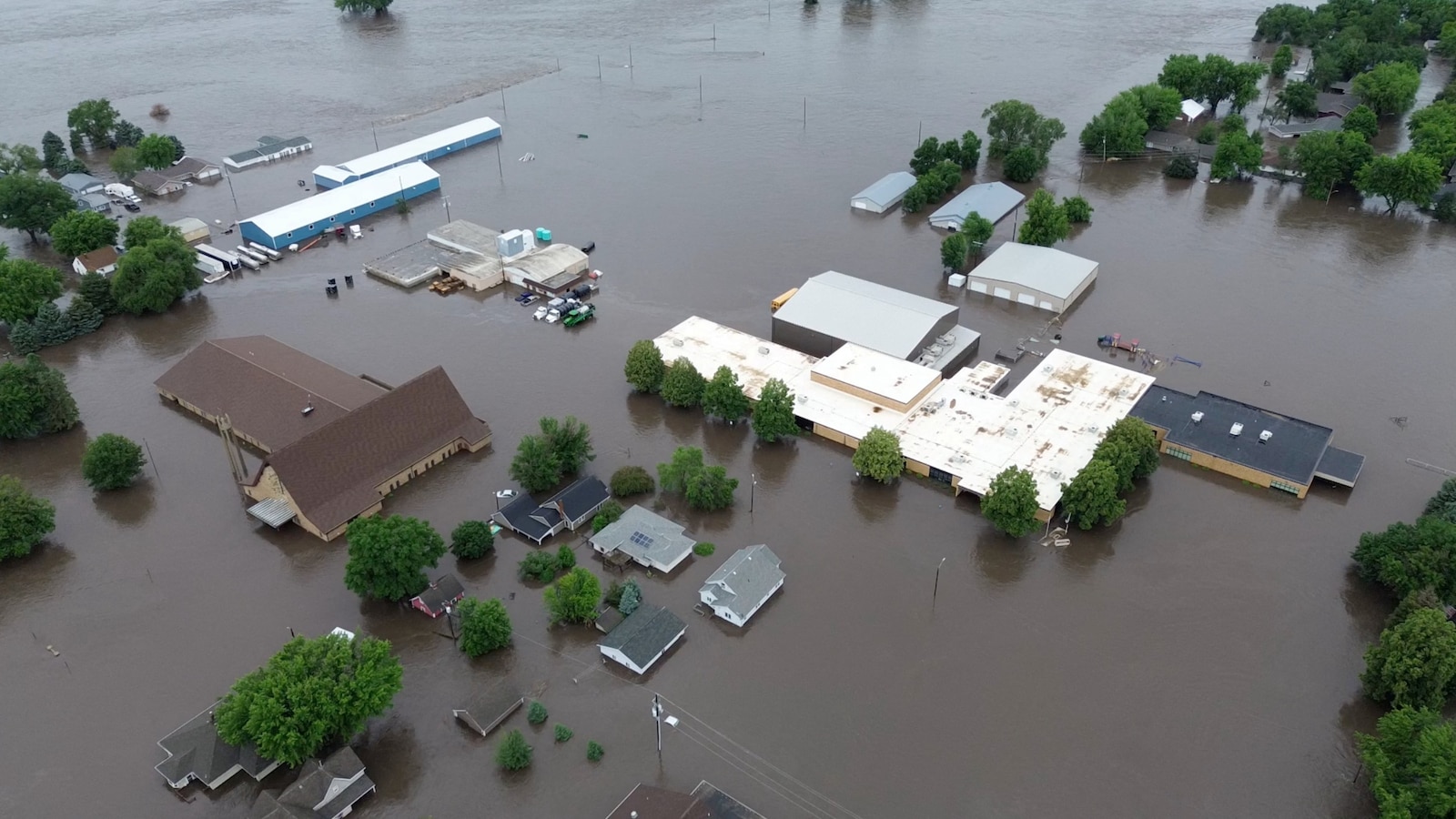Flooding in northwest Iowa, caused by heavy rainfall, has impacted 1,900 properties, leaving hundreds destroyed, Iowa Gov. Kim Reynolds told reporters Sunday.
During a media briefing, Reynolds said there had been 250 water rescues on Saturday, and over 1,000 residents had to be sheltered overnight.
Beginning on Friday, some areas were hit with up to 15 inches of rain, resulting in severe flooding.
Rivers crested several feet above record levels from the floods of 1993, and 16 flood gauges recorded historic levels, Reynolds said.
As of Saturday night, the Department of Natural Resources reported that 10 water systems and 21 wastewater systems had been affected by the flooding.

A drone view shows a flooded area following heavy rainfall in Rock Valley, Iowa, U.S. June 22, 2024, in this still image obtained from a social media video. (PHOTO: Chris VB/via REUTERS)
Chris Vb/Chris VB via Reuters
Reynolds, who took an aerial tour of the region, said Sunday the devastation is severe and widespread.
An initial disaster emergency proclamation for Sioux County was declared earlier in the weekend, according to Reynolds. Additionally, the Iowa National Guard was directed to set up a helicopter for rescue missions. Homeland’s Urban Search and Rescue teams were deployed for water rescues, she said.
On Sunday, Reynolds submitted a request for an expedited Presidential Major Disaster Declaration. In that request, they’re asking for additional federal assistance for nine counties and public assistance for 22 counties.
The governor’s Director of Homeland Security and Emergency Management, John Benson, said they are still working tirelessly because the situation is far from over. The forecast calls for more rain in the coming week, and the river gauges in the Missouri River are quickly rising, Benson said.

A drone view shows a flooded area following heavy rainfall in Rock Valley, Iowa, U.S. June 22, 2024, in this still image obtained from a social media video. (PHOTO: Chris VB/via REUTERS)
Chris Vb/Chris VB via Reuters
With the additional rain, flooding could continue to be an issue and may impact other parts of the state as well, Reynolds said Sunday night.
In addition to northwest Iowa, west central Iowa, southwest Minnesota, northeast Nebraska, central South Dakota, east central South Dakota, south-central South Dakota, and southeast South Dakota all have a hazardous weather outlook, according to the National Weather Service.
Streams, creeks and rivers are “in moderate to major flood stage leading to continued road closures,” per the NWS.

